
Feel free to add tags, names, dates or anything you are looking for
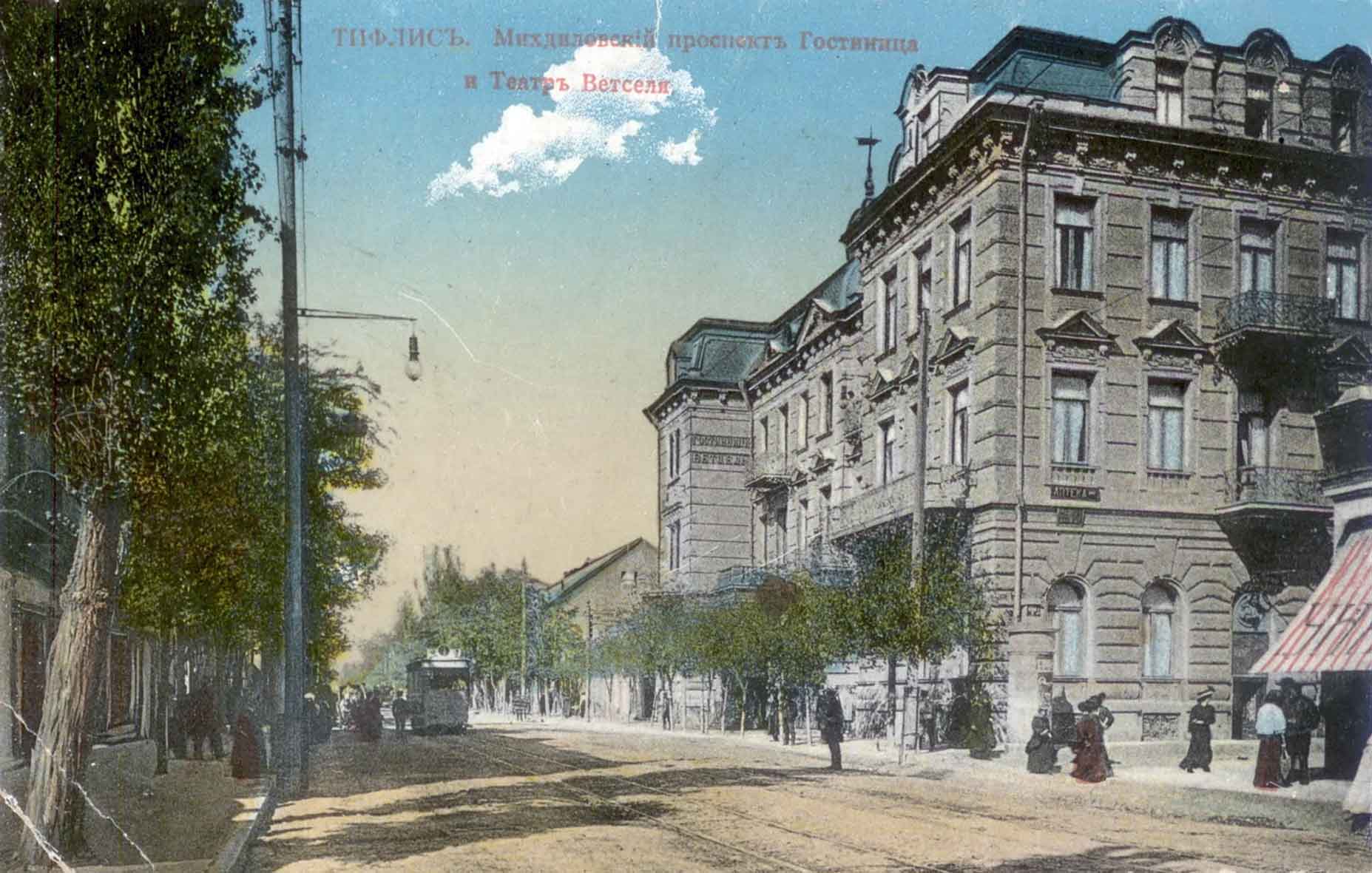

History of Tbilisi hotels is one of the bridges that link Georgian history with European history. Hotel as a social, economic, and architectural phenomenon was a product of the Modernity and a microcosm of innovations brought by the Modernity. Hotels contributed to the shaping of specific aspects of modern Tbilisi including urban economics and residential architecture, as well as sociability and tolerance of urban residents.
Hotels came into being in Tbilisi in the early nineteenth century due to the activity of French and German residents of the city. The first hotels in the city much resembled eighteenth-century European inns and taverns being similarly based on a household model of hospitality. Actually, they did not differ from dwellings in size and in planning. The first hotelkeepers - Jean Paul, Antoine Matassi, and Theodor Salzmann personally welcomed and usually knew well all of their guests. Travellers mentioned them by name, and often even described them in their writings.
From 1850s, hoteliers of a new generation - Carlo Moriggi, Jean Faguet, Arsène Barberon, Marius Martin, and others started renting large houses for their hotels. They chose the best buildings of the city, which belonged to rich noblemen and merchants – Mukhranbatoni, Orbeliani, Zubalashvili, Ananov, etc. Though being different from earlier hotels in size and architecture, they maintained many features of the household hospitality, such as family management, domestic atmosphere, and friendly contact with customers.
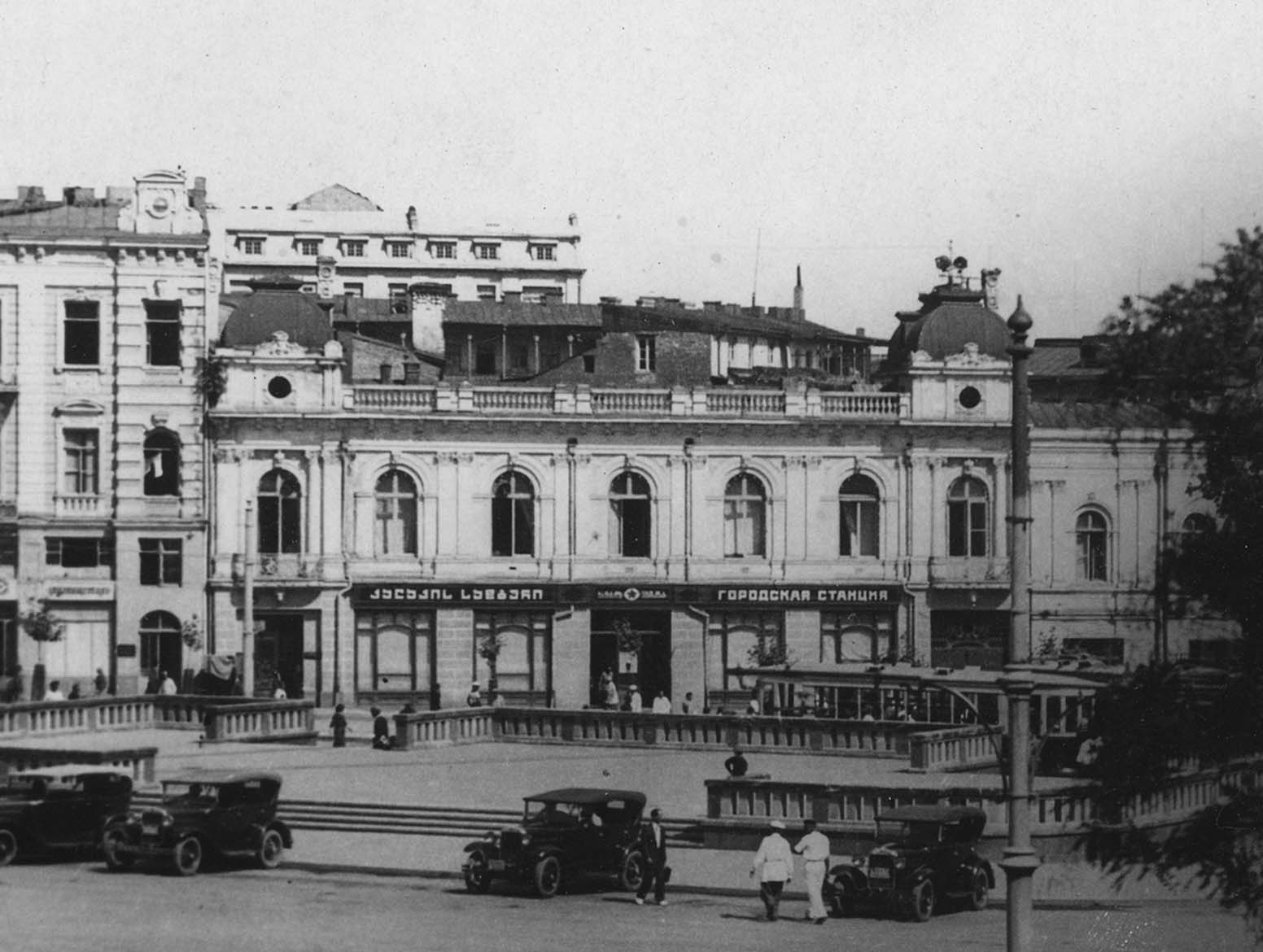
“Hôtel d’Europe” as in 1920s
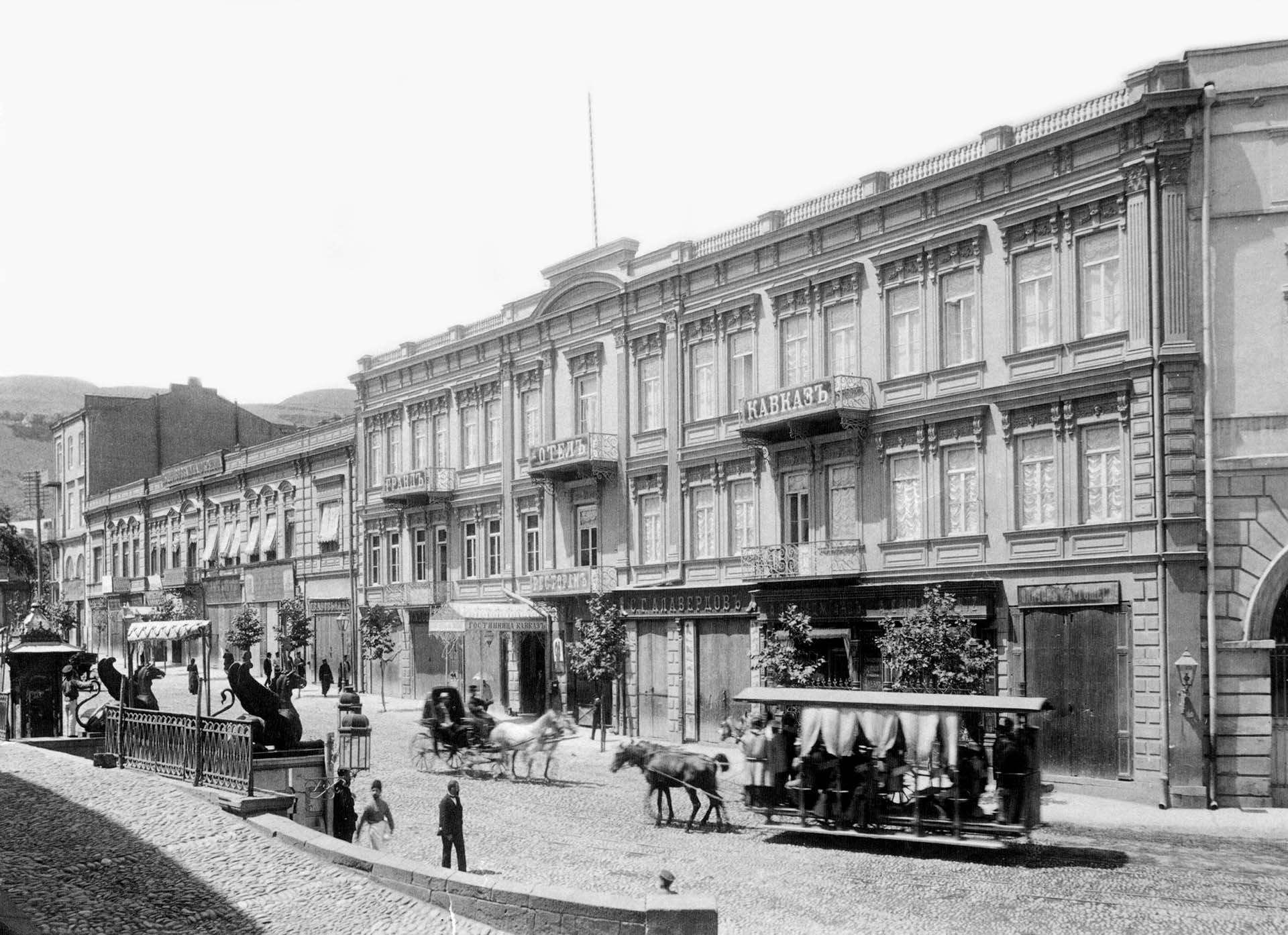
“Hôtel du Caucase” as in 1890s
In the 1860s and 1870s, “Hôtel d’Europe” and “Hôtel du Caucase” were considered to be the best in Tbilisi. Both were located in the very centre of the city, on the Erivansky Square (present Freedom Square).
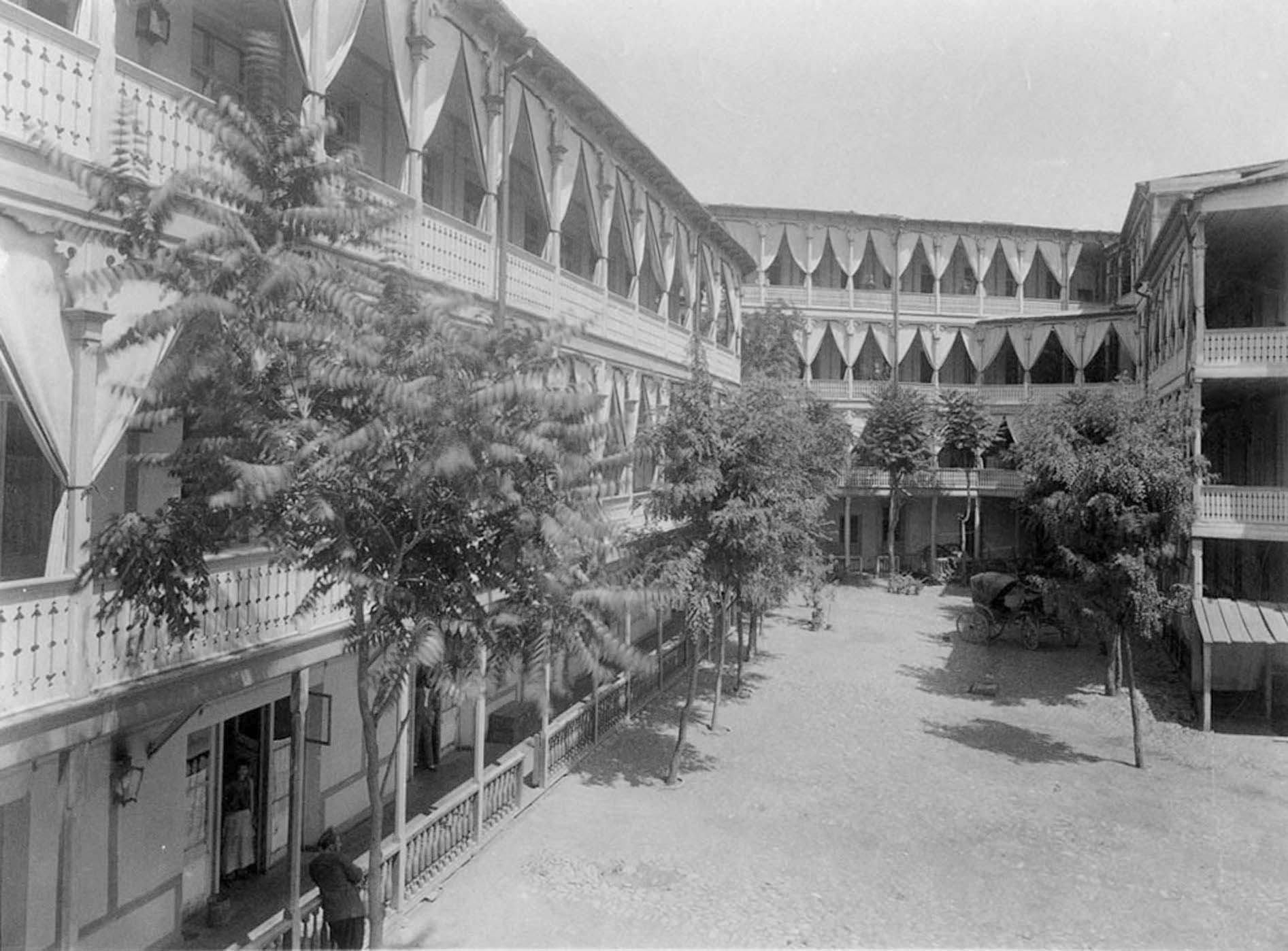
Hotel “Severnie Nomera” as in 1910s
As a rule, the nineteenth-century hotels had long and wide wooden balconies, a ubiquitous element of the residential architecture of Tbilisi. Unlike Western European and American hotels, lobbies in Tbilisi hotels were small and did not serve as a public space. This function was assigned to restaurants or dining halls.
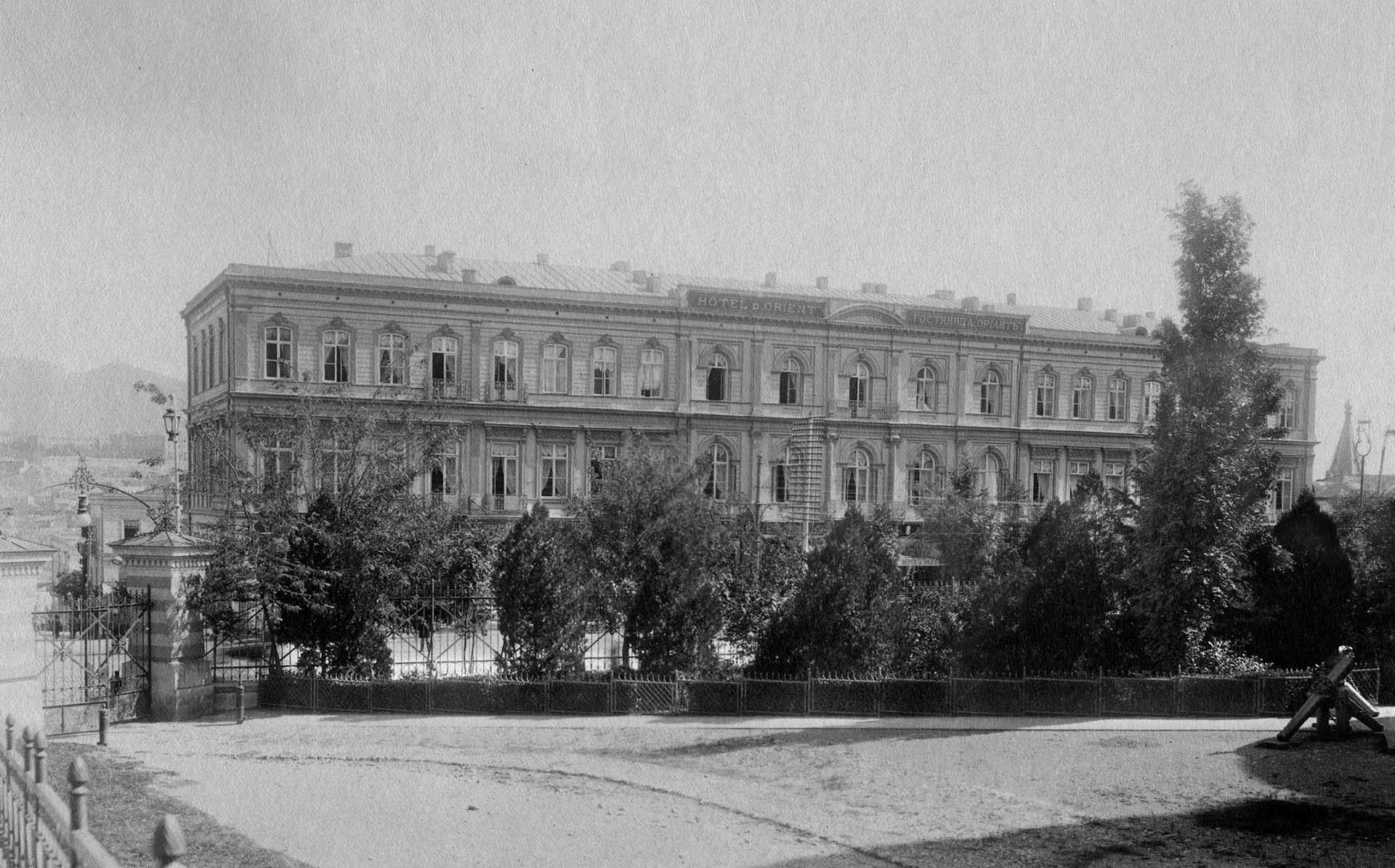
“Hôtel d’Orient” as in 1910s
The end of the nineteenth century heralded new developments in the hotel business. The former building of the Judicial Chamber on the Golovin Avenue (present Rustaveli Avenue), the main street of the city, was reconstructed and enlarged. Since 1895, it housed the well-known “Hôtel d’Orient.
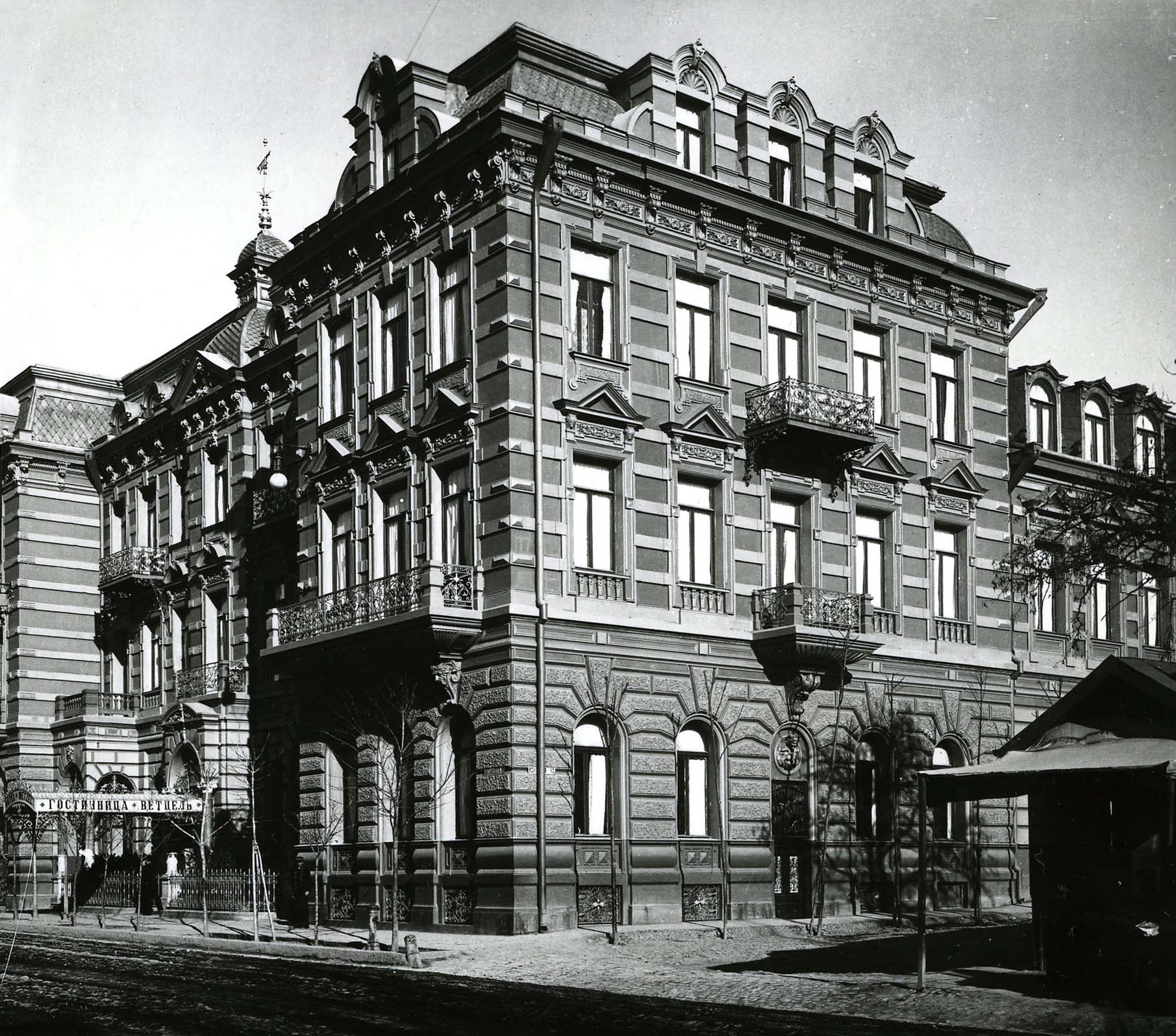
Hotel “Wetzel” as in 1900s
Friedrich Wetzel, the descendant of German colonists in Tbilisi, founded a new hotel on the left bank of the Kura River and gave it his family name. For the first time in Tbilisi, a large building was constructed specially for a hotel and its infrastructure.
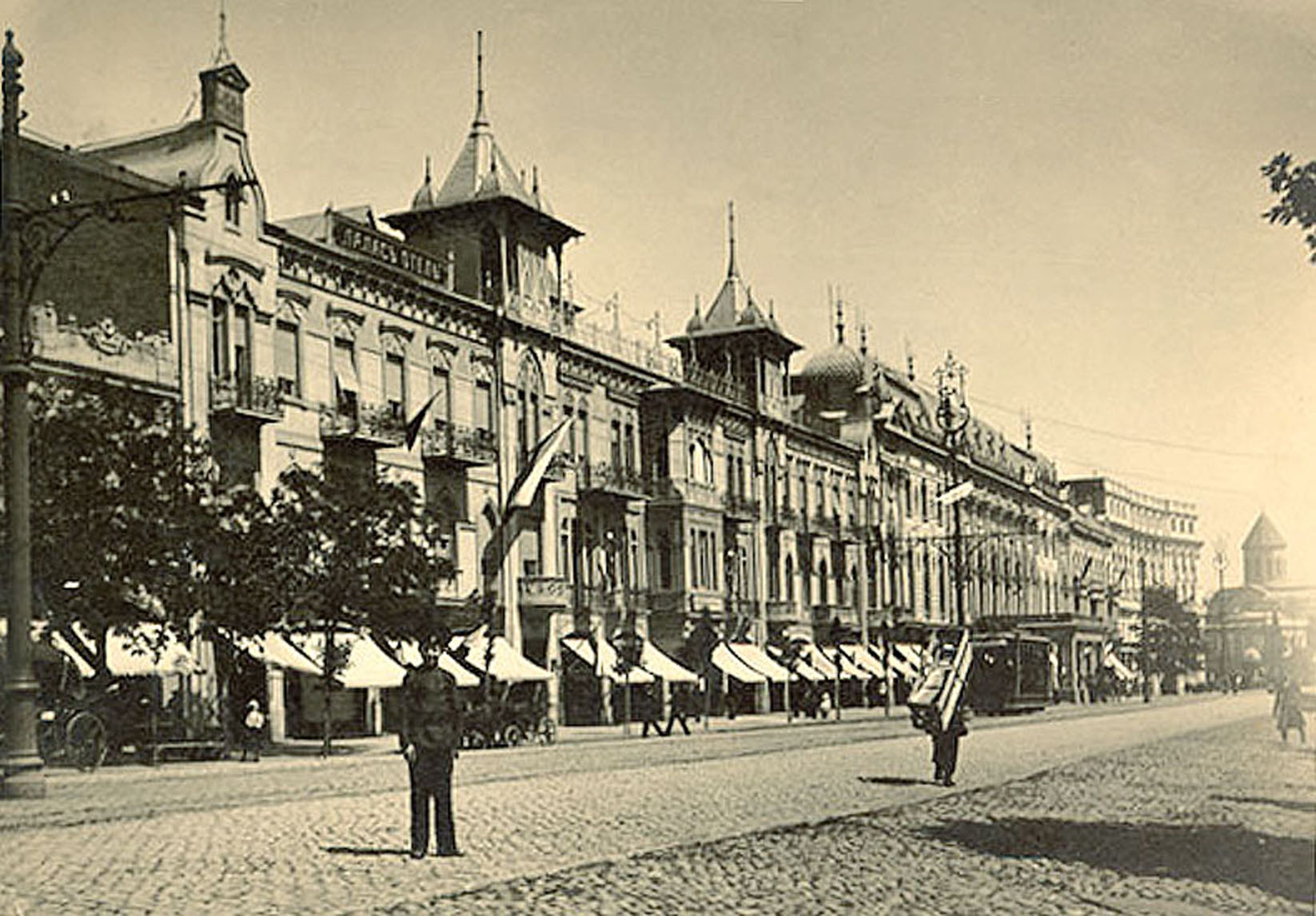
“Palace Hôtel” as in 1910s
Some years later one of the old hotels underwent full reconstruction to become luxurious “Palace Hôtel”. “Hôtel Majestic” completed in the years of the World War was the first five-storey hotel in Tbilisi, with spacious lobby and cinema. The best architects of the city – Albert Salzmann, Leopold Bielfeld, Alexandr Ozerov, Gabriel Ter-Mikelov worked on these projects. Great hotels founded in Tbilisi about and after 1900 fully adopted contemporary Western standards introducing the institutional model of hospitality. They were operated by professional managers, employed large numbers of wage workers and provided rationalized service. Privacy became more important than the friendship with hotelkeeper.
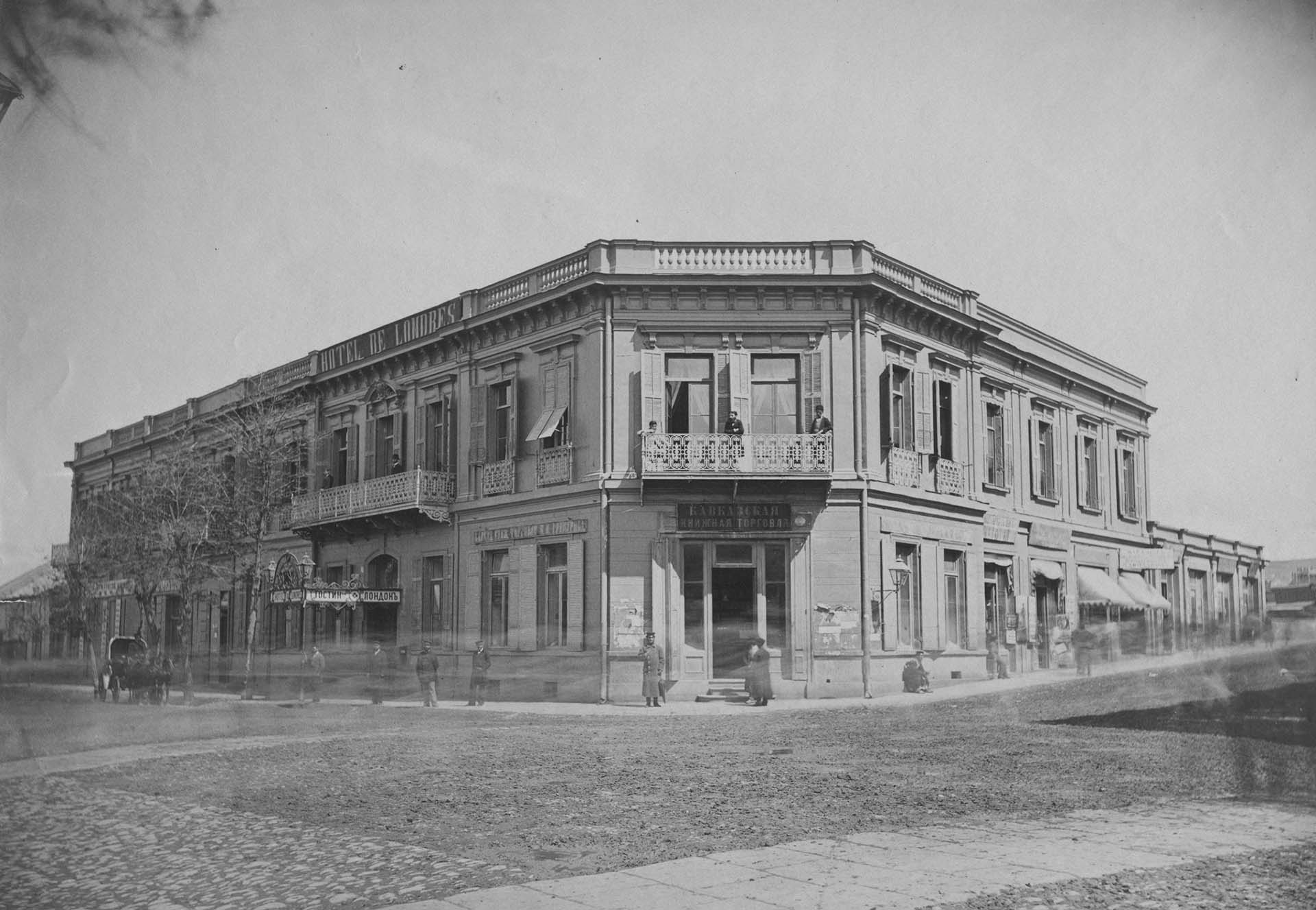
Hotel "London" as in 1890s
However, many smaller hotels still followed the old model. Hotel "London" (“Hôtel de Londres”) was the most remarkable among them successfully combining household hospitality with the highest international standards of service. It hosted many famous personalities of that period including the English statesmen Marquess George Curzon, the Norwegian writer Knut Hamsun, the Russian composer Pyotr Tchaikovsky, and the English political officer and archaeologist Gertrude Bell. Many travellers expressed in their writings their appreciation to the keeper of the hotel "London" Katharina Richter. In the nineteenth century, the majority of hoteliers in Tbilisi were Europeans or local residents of European descent. Georgians became particularly active in the early twentieth century when they kept the majority of the city's hotels. Some of them made a distinguished career in the hotel business. Noah Sikharulidze started as a valet at the above-mentioned hotel “Wetzel” and ended up as its proprietor, buying the business from the previous owner Friedrich Wetzel in 1911.
During the First World War and the Russian revolutions many hotels stopped working in Tbilisi. However, as early as 1919 the situation began to improve. The revival of hotel business in Democratic Republic of Georgia was roughly interrupted by the Bolshevik invasion and further annexation of the country to Soviet Russia. In 1920s, the majority of the hotels were closed and their buildings were expropriated to be given to various Soviet offices.